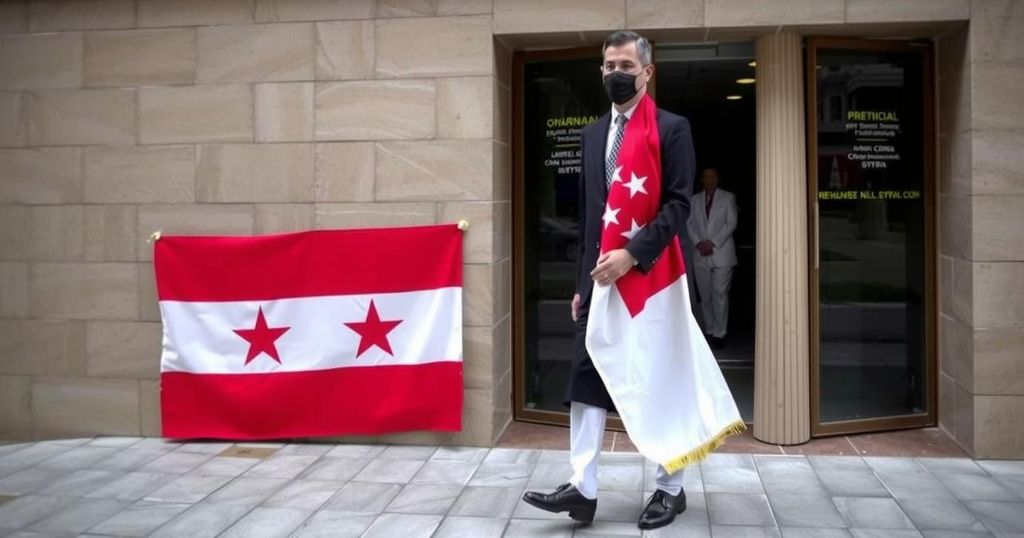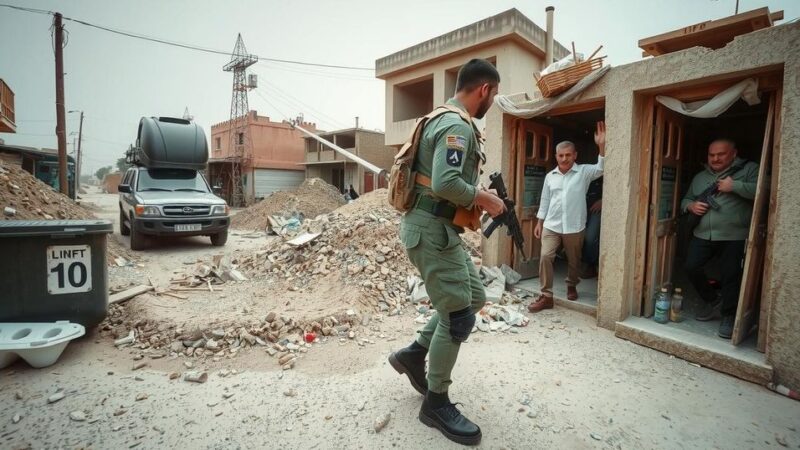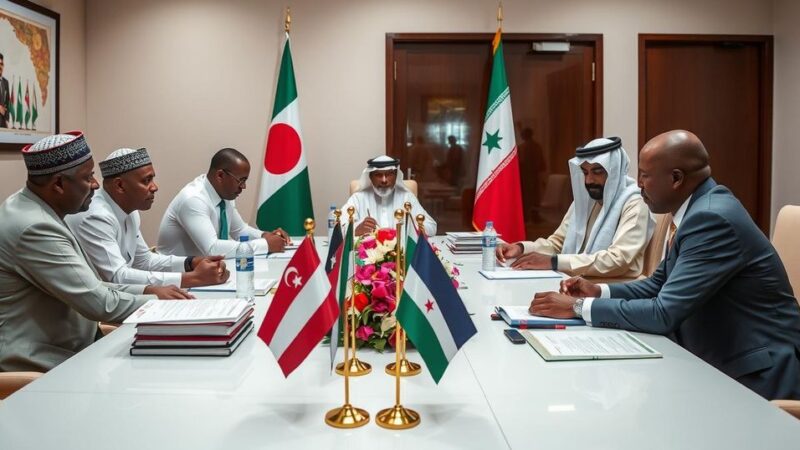Syria’s embassy in Lebanon has suspended consular services following the arrest of two relatives of ex-President Assad for allegedly using forged passports. Lebanese authorities also handed over numerous Syrians, including former army officers, to the new Syrian government. Regional diplomatic ties are being re-established, yet there are rising tensions and protests regarding women’s rights under the new regime led by HTS.
Syria’s embassy in Lebanon announced the suspension of its consular services on Saturday, a day after Lebanese authorities arrested two relatives of former Syrian President Bashar Assad at the Beirut airport for allegedly possessing forged passports. This suspension follows reports of the handover of numerous Syrians, including former Syrian army officers, to the newly established Syrian government by Lebanese authorities, as they were apprehended for illegally crossing into Lebanon.
The embassy indicated via its official Facebook page that services would remain suspended “until further notice,” as ordered by the Syrian foreign ministry, though no specific reason was provided. Two Lebanese security officials, speaking on condition of anonymity, suggested that the suspension was linked to the forge passports used by Assad’s relatives, who include his cousin’s wife and daughter. Notably, Rifaat Assad, an uncle of Bashar Assad currently facing war crimes charges in Switzerland, was able to depart Lebanon using his legitimate passport without incident.
According to the UK-based Syrian Observatory for Human Rights, about seventy Syrians, among them former army cadre, were turned over to the new Syrian authorities, led by Hayat Tahrir al-Sham (HTS). These individuals had been detained for entering Lebanon illegally. Confirmations of these reports came from three anonymous Lebanese judicial officials.
In recent developments, several regional countries have been quick to re-establish connections with Syria under the new administration. Official visits from Libyan and Bahraini officials to Damascus occurred on Saturday, signaling a shift in diplomatic interactions. HTS leader Ahmad al-Sharaa has succeeded in assuaging fears of retribution against communities that previously supported Assad’s regime, though tensions have persisted between HTS forces and pro-Assad groups, with reports of clashes and armed group raids ongoing.
In northeastern Syria, there are escalating conflicts between Kurdish-led forces and Turkish-backed armed groups, with many Kurds expressing concern regarding the new order in Damascus, which is perceived to empower Turkey’s influence in the region. The U.S. State Department indicated that Secretary of State Antony Blinken discussed the situation in Syria with Turkish Foreign Minister Hakan Fidan, emphasizing the necessity for a political process that prioritizes human rights and an inclusive government.
Furthermore, hundreds of protesters, organized by Kurdish women’s groups, gathered in the city of Hasaka to advocate for women’s rights amidst concerns about the new government’s Islamist orientation. Participant Perishan Ramadan remarked that the current administration is “worse than Bashar” and opposes women’s roles. Rihan Loqo, spokeswoman for the Kongra Star women’s organization, emphasized the significance of including women in Syria’s new constitution: “Women’s rights should not be ignored.”
The recent suspension of consular services at Syria’s embassy in Lebanon comes amid heightened political tensions stemming from the actions of Lebanese authorities, including the detention of relatives of former Syrian President Bashar Assad. This incident coincides with the transfer of several Syrians, particularly former army officers, to a newly established Syrian government led by Hayat Tahrir al-Sham (HTS). This shifting political landscape has prompted regional countries to rekindle ties with Syria under its new ruling party, as well as ongoing concerns about local security and humanitarian rights among various ethnic and political groups in the region. The evolving dynamics reflect the complex history and ongoing conflict in Syria, particularly the proliferation of power to different factions after the Assad regime’s waning influence.
The suspension of services at Syria’s embassy in Lebanon highlights the increasing tensions following the arrest of Bashar Assad’s relatives and the handover of Syrian nationals to the new regime. With growing concerns regarding regional stability and the treatment of women under the new governance, the situation in Syria remains precarious. Current diplomatic engagements by regional governments reveal both opportunities for renewed relations and the challenges posed by local dynamics, further complicating the pathway to peace and stability in Syria.
Original Source: www.independent.co.uk







